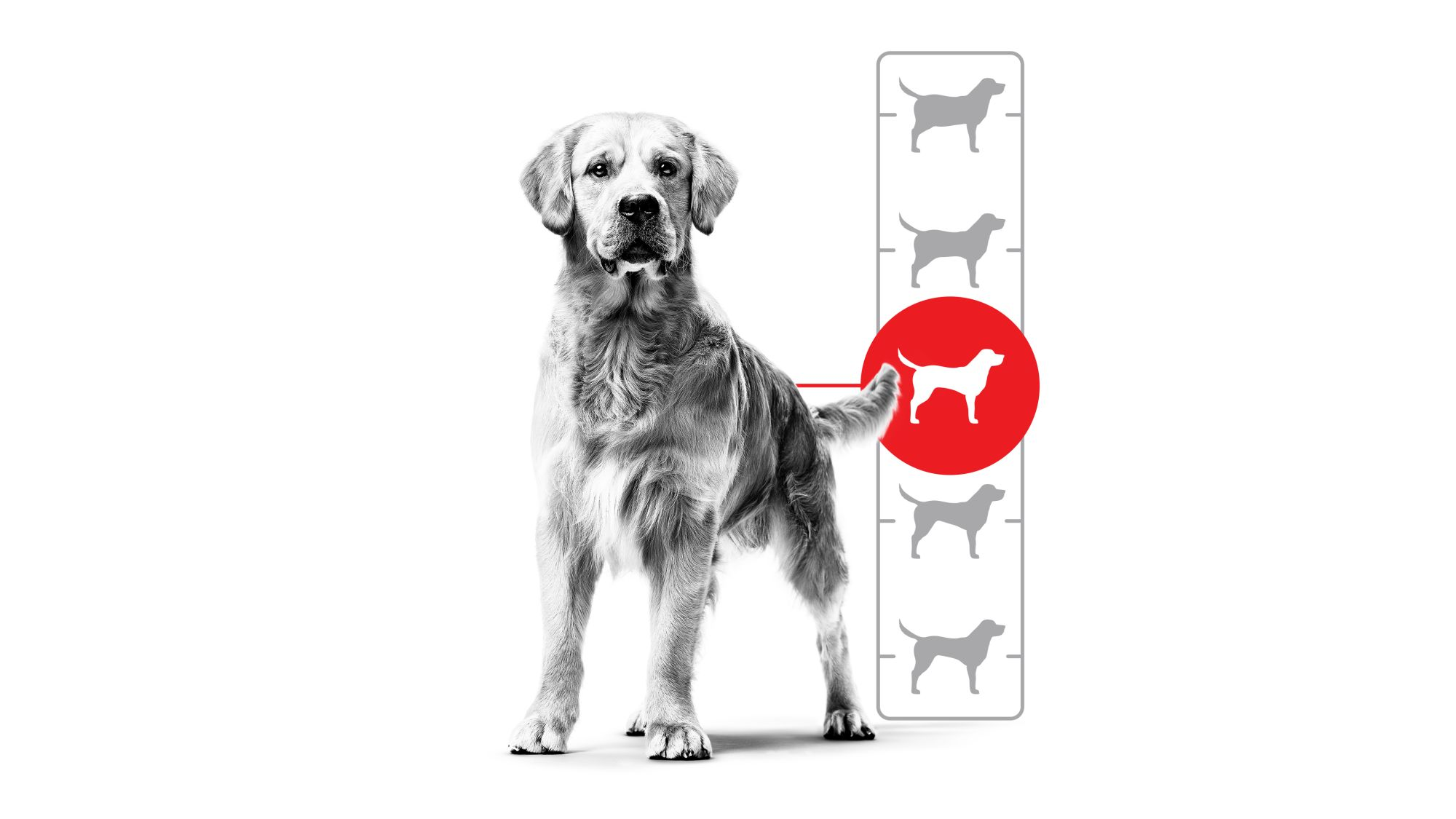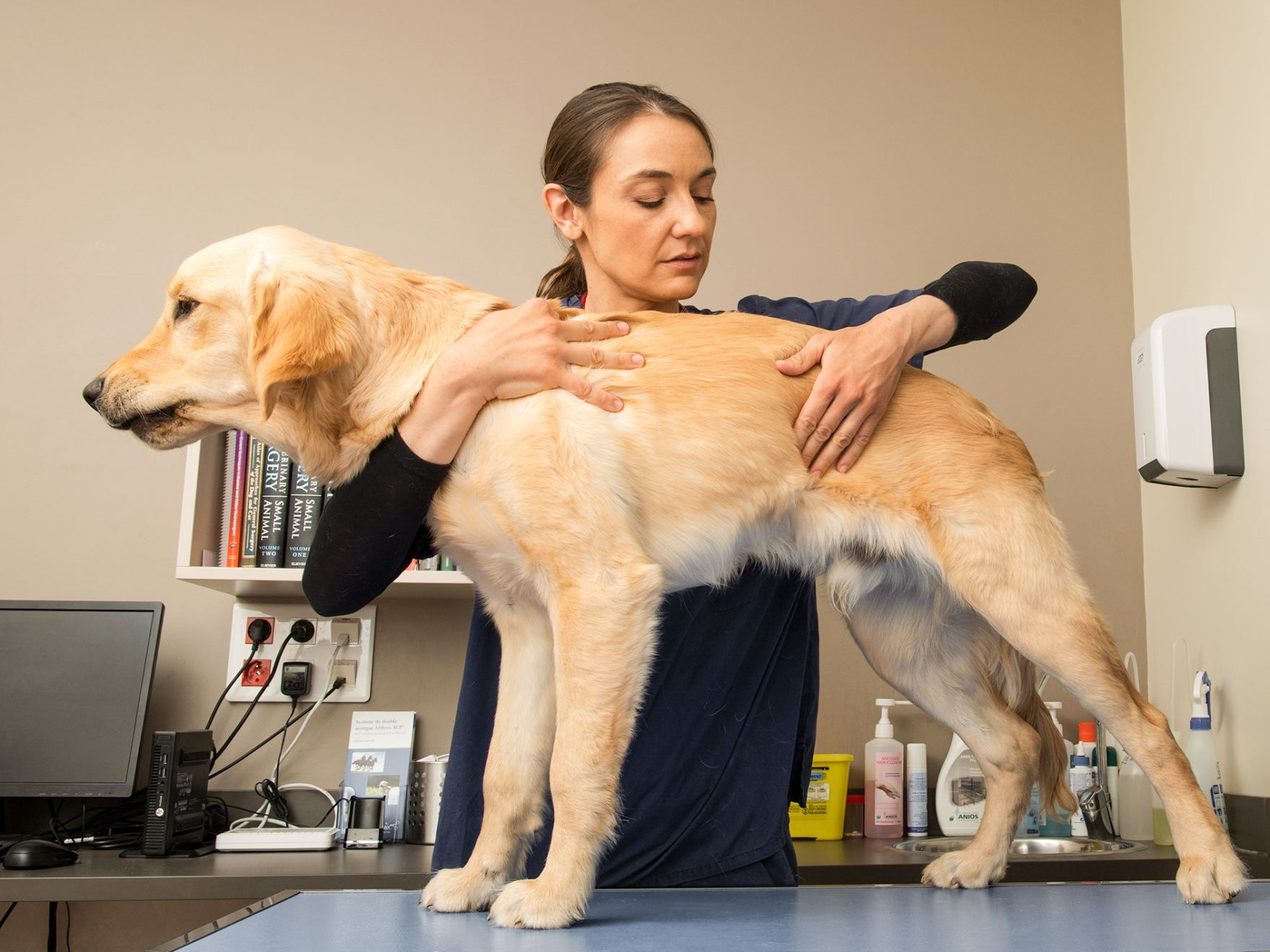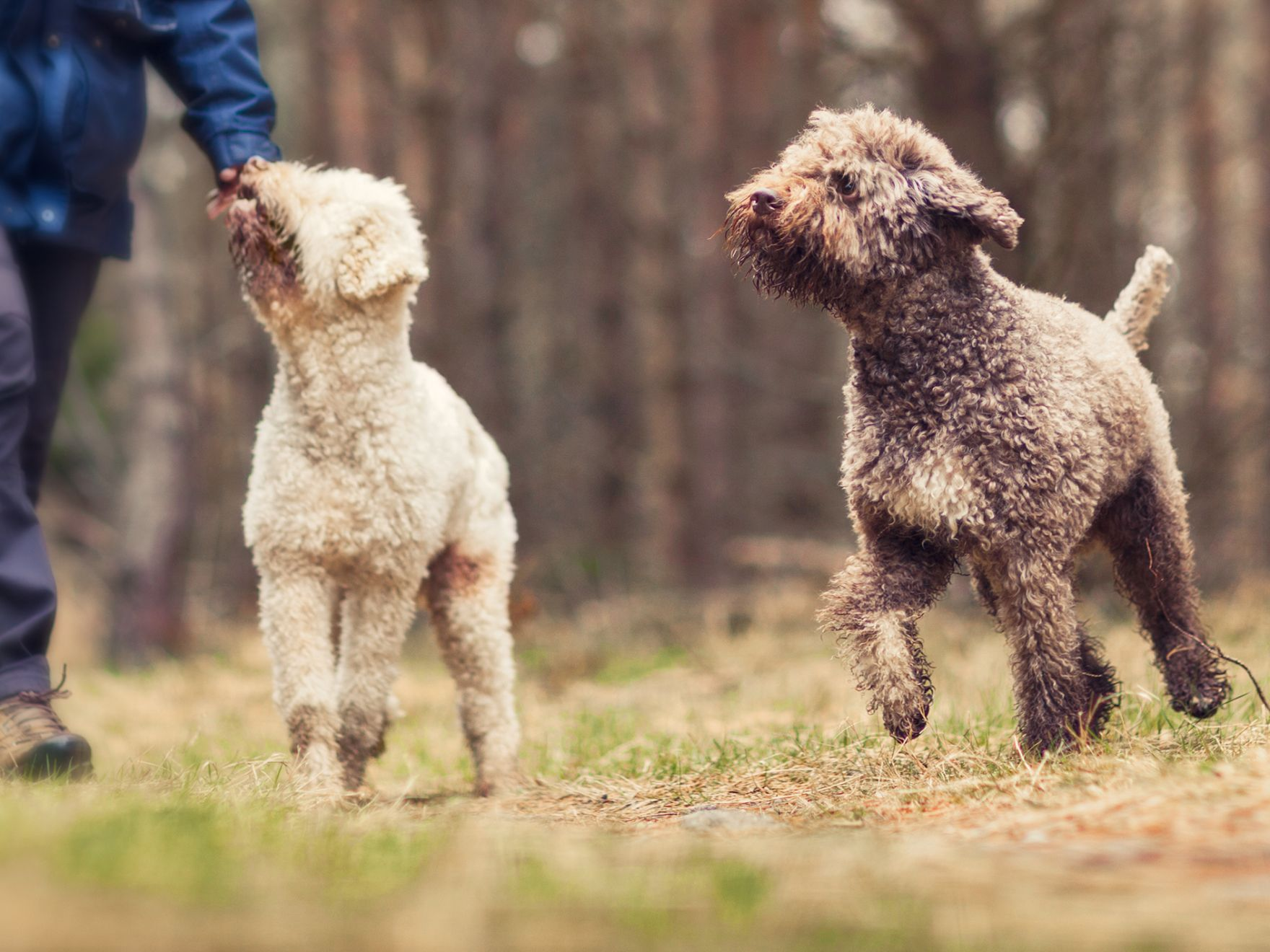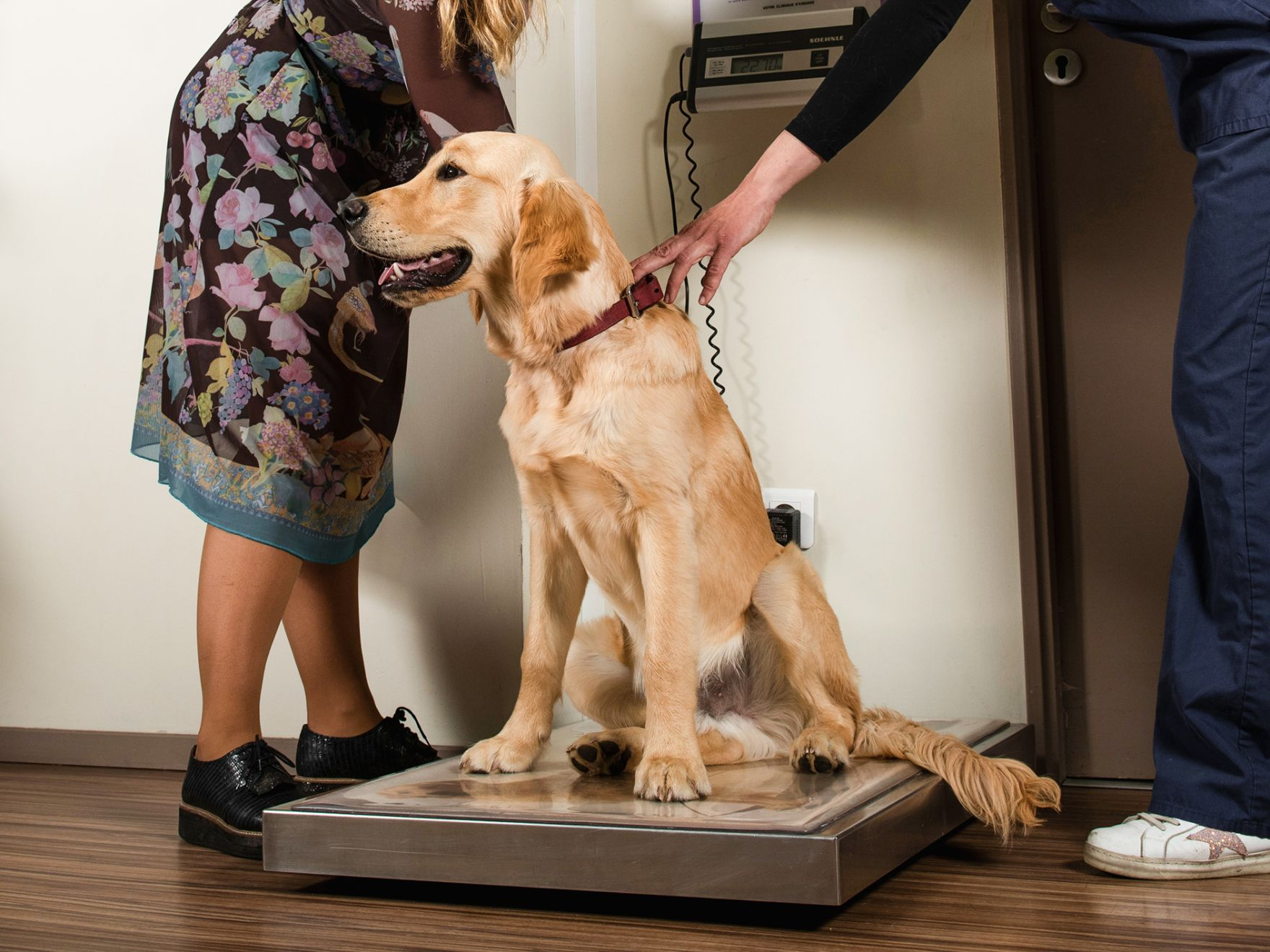
Healthy weight isn't only measured on a scale
Weighing your dog is not the only way to check if they're overweight. You can find out if your dog is a healthy weight by asking your vet how to use the Body Conditioning Score.

What is a cat’s body condition score?
The body conditioning score is used by vets to help you check whether your dog is overweight or underweight. It focuses on the look and feel of your dog because checking their weight alone doesn’t give an indication of a healthy shape.
The body conditioning score uses a 9-point system ranging from emaciated at 1 to severely obese at 9. The indicators used for scoring are your dog’s ribs, waist and abdomen, and a score of 5 is the ideal dog shape. This means a well-proportioned dog will have ribs that can be easily felt, a waist that can be seen from above and an abdomen that tucks up behind their rib cage when seen from the side.
Your vet can show you how to use the dog body condition score chart. It’s also important to visit them regularly so they can help you monitor your dog’s shape over the long-term.
How do I tell if my dog is overweight?
It’s crucial to identify if your dog is carrying too much weight and take action. Overweight dogs are at greater risk of a number of serious and life-changing conditions, including a shortened life expectancy, Diabetes and Osteoarthritis.
A dog is classed as overweight when it is 15% to 20% over its ideal weight and is classed as obese when it is more than 30% over. It’s easy to underestimate how heavy your dog is though, so the best way to check if they’re gaining too much weight is a 3-step look- feel-weigh approach.
- Look at their behaviour and shape. Are they somewhat lethargic or get tired easily? Does their stomach sag or can you see their waist and the tuck of their abdomen behind their ribs?
- Feel their ribs – using light pressure, how easily can you feel them? How much pressure do you have to use to feel them?
- Weigh your dog - by weighing them regularly you can monitor any weight gain. Your vet can tell you their ideal weight based on their current weight and assessing their body condition score.

How to help your overweight dog lose weight
The great news is that both overweight and obese dogs can be treated. And getting your dog back to an optimal weight you will increase their quality of life. Dogs of a healthy weight have also been shown to live longer than those with obesity.
Being overweight is caused by eating more calories than are being used. So the important areas to address are your dog’s food and exercise. Ask your vet about diets designed for overweight dogs. If you just decrease your dog’s meal sizes it may lead to nutritional deficiencies or begging. Make sure you stick to the portion size on the pack and avoid giving treats in addition to this – or save some of their dry daily food allowance to use as treats.
Regular physical activity is essential for their overall wellbeing, as well as helping them lose weight and maintain a healthy shape. Ask your vet about the right level and type of exercise for your dog, and only increase it gradually with your vet’s guidance.

Speak to your vet
If you have any concerns or questions about your dog’s weight or shape, it’s always best to speak to your vet. They’ll be happy to help and can identify how overweight your dog is, if at all, and what actions you should take to help it lose weight or to advise you on how to prevent weight gain.
Likewise, it’s important to speak to your vet before making any changes to your dog’s diet, exercise patterns or lifestyle. Or before making any other decisions that could impact their health.
As no two dogs are the same, your vet can give you advice tailored to your dog as an individual. This will be based not just on their breed, age and sex, but on factors such as any existing health conditions and whether or not they’ve been sterilised.